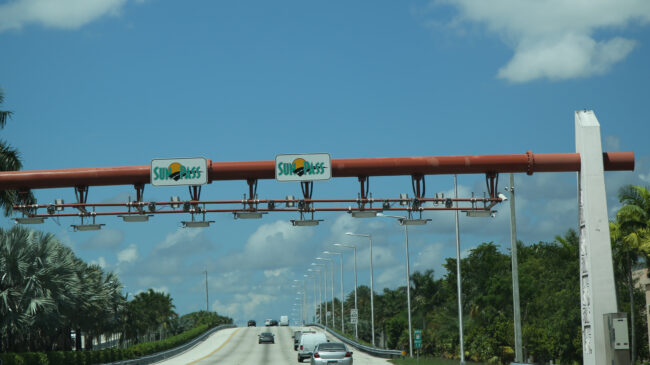The COVID-19 pandemic accelerated an ongoing transition to cashless tolling across the country. Most customers appreciate the lack of long lines at toll booths and the convenience of all-electronic tolling, usually with a transponder on the windshield. But these programs almost always require a pre-paid account with access to either a credit card or a bank account. That’s fine for most of us, but what about customers who lack a credit card or bank account?
In 2019, at least 5.4% of U.S. households were “unbanked,” lacking either a credit card or a bank account. Several times that many were “underbanked,” meaning that while they have an account, they conduct most transactions in cash. These drivers could pay tolls based on their license plate numbers, but that requires billing and collection, which almost always means additional service charges and/or higher toll rates. Since most unbanked and underbanked households have low incomes, having them pay more than most others to use toll roads is clearly inequitable.
Fortunately, several toll road operators have come up with ways for the unbanked and underbanked to have cash-based toll accounts that use the same transponders as everyone else. As documented in a new Reason Foundation policy brief, the urban toll road system in Puerto Rico pioneered this change.
In 1999, more than 50% of the licensed drivers in Puerto Rico did not have a bank account, and close to 75% did not have a credit or debit card. But most people had cell phones, and there were prepaid cell phone programs in operation, with people replenishing their accounts in cash at point-of-sale (POS) terminals in retail outlets.
Puerto Rico’s new AutoExpreso cashless electronic toll program adapted this point-of-sale cash replenishment concept. Initially, the toll agency signed up Texaco, with over 250 gas stations on the island, as the initial host for new POS terminals. Other retailers soon joined the program, making it easy for potential customers to find a convenient place to sign up and to replenish their accounts with cash.
Besides getting a transponder, each AutoExpreso customer received a magnetic stripe card, to use when their account needed to be replenished with cash. These accounts are anonymous, linked only to the account number on the magnetic stripe card.
AutoExpreso proved so popular that large numbers of people with bank accounts and credit cards also opened cash-based, anonymous accounts. Within two years of its introduction, more than 50% of rush-hour vehicles on the San Juan toll roads had enrolled in the program. That very large shift from cash payments at toll booths to electronic tolling eliminated chronic congestion at the toll plazas. By 2005, more than two million transponders were in use in Puerto Rico.
This success did not go unnoticed. In 2010, Florida’s statewide SunPass electronic tolling system introduced a similar program for those without credit cards or bank accounts. Like the Puerto Rico program, it makes use of point-of-sale terminals at over 3,100 retail outlets near Florida toll roads (and at Florida’s Turnpike service plazas). Replenishing the account with cash is standard, and the account can be anonymous, like many of those in Puerto Rico.
Several other toll road operators have created similar programs. They include the New Hampshire Department of Transportation’s E-ZPass Reload Card, the San Francisco Bay Area FasTrak cash deposit and replenishment program, and the North Texas Tollway Authority’s ZipCash program.
These new programs are win-win solutions for unbanked and underbanked customers, as well as the toll road operators. They give many drivers a more convenient way to pay tolls (electronically) and at the lowest toll rates. And the toll road operator avoids the high costs of billing and collections. All toll road operators should consider such programs, especially those in states with high proportions of unbanked and underbanked populations.

